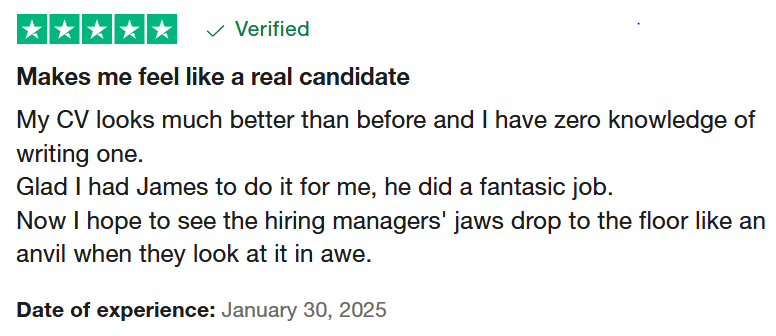Lying on Your CV: The Risks and Legal Implications You Need to Know
When job applications start to feel like an extreme sport, the idea of “tweaking” your CV can seem pretty tempting.
The truth is, those white lies can snowball into serious consequences. We’re talking withdrawn job offers, damaged reputations, and in some cases, even legal trouble.
The good news? You don’t need to fabricate to impress. A strong CV doesn’t rely on fiction, it relies on clever positioning, clarity, and confidence. That’s something I’ve always championed at The CV Centre. With the right structure and wording, your real experience can shine just as brightly as any exaggerated version, without lying on your CV.
The Dangers of Dishonesty in Your Job Application
Under the Fraud Act 2006, lying on a job application can legally count as fraud by false representation. That means if you knowingly provide false information to gain something or secure employment, it’s not just frowned upon, it’s a criminal offence.
But do little white lies really count?
In a word, yes. Even tweaking a job title or stretching dates can backfire. Whilst they might not take legal action, employers see it as a breach of trust. In the next section, we'll go through some of the most common ways in which job hunters lie on their CVs - and why you shouldn't join the club!

Where Do People Lie On Their CVs?
Here are the usual suspects when it comes to CV fibbing, and why even white lies can snowball into a full-blown disaster (without the dramatic soundtrack).
Not sure how to put your best foot forward on your CV whilst keeping things honest? Get a free CV review and find out. You might be closer to landing your next role than you think!
Academic Qualifications
Qualifications exist for a reason. They demonstrate that you've met certain standards and completed structured training, and misrepresenting them can carry serious legal consequences. In fact, there was a high-profile case where someone was sentenced to two years in prison after lying about their qualifications to land senior NHS roles.
Now, you’re probably not claiming to have a fake PhD, but even a slight exaggeration, like listing a qualification you didn’t quite finish or adjusting your grades, can raise red flags during checks.
Professional Experience
This is another common grey area. Sometimes people inflate job titles, broaden the scope of their responsibilities, or tweak dates to fill gaps in their employment history. But here’s the thing: employers are wise to this, and with reference checks more common than ever, these little changes can quickly unravel.
Even something like upgrading a job title can lead to mismatched expectations. If you’re brought into a role based on certain responsibilities - and you can’t back them up on the job - that can become a very awkward conversation, very quickly.
Key Skills and Soft Skills
Overstating your skills to fit the job description is another easy trap to fall into. Claiming you’re fluent in a software you’ve dabbled in, or listing soft skills you’ve not actually demonstrated, can leave you stumbling when asked for examples or, worse, expected to apply them from day one.
Not quite sure how to showcase your skills the best way? Our blog on CV skills is a great place to start.
Honest Alternatives to Enhance Your Application
If you’re worried about a gap, a lack of formal qualifications, or limited experience in a certain area, don’t panic. When done right, a truthful CV can actually feel more confident and compelling than one filled with half-truths.
Focus on Genuine Achievements
You’d be surprised how impactful your real accomplishments can be when they’re presented clearly and confidently.
Did you reduce admin time by streamlining a process? Handle a high volume of client calls? Take on extra responsibility during a busy period? Those are the kinds of achievements employers love. They’re concrete, relatable, and honest.
Remember to use powerful language to highlight your role and the results. Words like led, delivered, created, streamlined, increased, reduced, resolved, which show you took action and made an impact without being misleading. Percentages and numbers are also a great way to prove the value you can bring.
Address Employment Gaps or Weaknesses Transparently
If there’s a gap in your skill set, be honest about it - but pair it with your willingness to learn. Employers don’t expect perfection, but they do appreciate enthusiasm and initiative.
Try something like: “I’m currently completing an online course and am confident in picking up new systems like [software listed in job description] quickly.”
When it comes to employment gaps, it’s the same principle: be upfront, be clear, and most importantly, be confident. Need help figuring out how to word your specific situation? Check out our blog on how to explain employment gaps on your CV. It’s packed with examples and advice that’ll help you feel more confident about owning your story.
Use Your Cover Letter
Your CV should pack a punch on its own, but don’t underestimate the power of a good cover letter. It’s your chance to speak directly to your potential employer, to explain why you’re genuinely excited about the role, how your strengths align with the company’s goals, and what you bring that makes you a standout fit.
Let’s say the role involves managing stakeholder communication, but your CV shows limited direct experience. Your cover letter is where you can fill in the blanks, like so:
“In my previous role, I regularly liaised with internal teams and external clients to coordinate timelines and resolve issues - a skill set I’m confident translates well to stakeholder management in your organisation.”
The Serious Consequences of CV Fraud
What might happen if you lie on your CV? Let's go through some example scenarios.
Scenario 1: Termination After a Background Check
So, you’ve landed the job. Hooray! But then, as part of the onboarding process, HR runs a routine background check - and that “degree” you mentioned doesn’t quite stack up.
The employer is within their rights to terminate your contract for gross misconduct, which can leave a permanent mark on your employment record. Thanks to modern fraud prevention systems, one false claim can make it very difficult to secure future roles, especially in regulated sectors.
Scenario 2: Interview Failure Due to Exaggeration
Interviews are where the truth catches up with you. Maybe you’ve said you’re an Excel expert on your CV. Sounds great, right? But then you're asked to talk through a real project or complete a task live, and suddenly you're wishing you'd at least Googled what a pivot table is.
Embarrassment aside, it also leaves a poor impression on the hiring panel, who may question the rest of your application, too.
Scenario 3: Legal Action for False Representation
While most employers won’t take you to court for a bit of overenthusiastic phrasing, more serious or deliberate lies - especially those that lead to securing a position - can absolutely lead to legal action. Even when it doesn’t go as far as a criminal charge, the threat of legal proceedings alone can be expensive, time-consuming, and very stressful.
Build an Honest CV with The CV Centre
Why work with The CV Centre? You’ll walk away with a CV that’s honest but impactful, modest but confident, and most importantly, one you feel proud to submit.
We specialise in drawing out the genuine value of your experience, even if you’re changing careers, haven’t got a perfect track record, or lack a specific qualification. We help you pinpoint achievements you might have overlooked, position transferable skills in a way that resonates with employers, and create a compelling personal statement that reflects your potential without needing to pad the truth.
And if there’s something you’re worried about (a gap, a lack of formal training, or limited experience in one area), we work with you to address it head-on.

Frequently Asked Questions
Still got questions? You’re not the only one. Here are some of the things we’re asked most often by clients who are worried about how honest is too honest on a CV.
Is It An Offence To Lie On Your CV?
Yes, lying on your CV is considered an offence under the Fraud Act 2006. If you knowingly provide false information to gain employment, it can legally be classed as fraud by false representation.
What Are The Most Common Lies People Tell On Their CVs?
The most common CV lies are:
- Claiming a degree or qualification that was never achieved
- Extending job dates to cover employment gaps
- Listing skills you don’t have (tech skills are a big one)
Will Employers Know If I Lie On My CV?
Yes, employers can and do find out if you lie on your CV. Background checks are becoming more widely encouraged during the hiring process, and many sectors require references, which can involve contacting previous employers directly. That makes it fairly easy for hiring managers to verify whether you’ve been truthful about your role, responsibilities, and achievements.
Is It Ever Okay To Exaggerate On My CV?
It’s not okay to exaggerate or embellish on your CV. It can be tempting in today’s competitive job market, especially when you feel like you're just a few bullet points away from landing the role. But confidence shouldn’t come at the cost of honesty.
You can (and should) present your experience in the strongest light, just make sure it’s accurate. A polished, truthful CV shows employers that you’re credible, self-aware, and someone they can trust.
How Can I Explain A Gap Without Lying On My CV?
To explain a gap on your CV without lying, keep it simple and positive. Be honest about the reason, whether it was for personal development, caring responsibilities, travel, redundancy, or anything else, and briefly highlight how you stayed active or what you learned.
For example:
"Career break following redundancy, during which I stayed engaged with professional development through networking and volunteer work in the local community."

